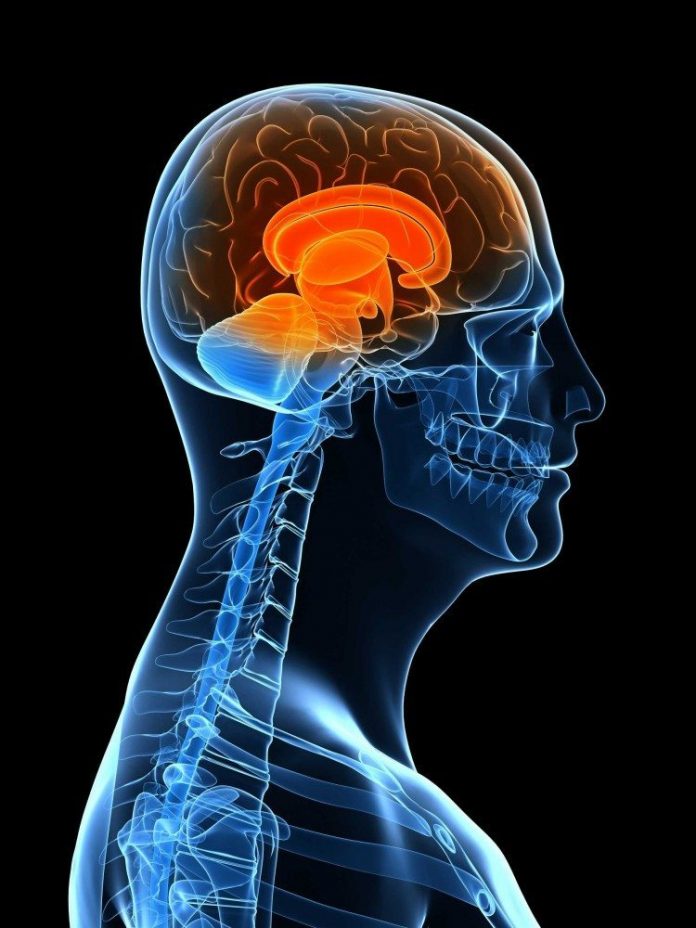Multiple sclerosis is an autoimmune disease that affects the brain and spinal cord.
Multiple sclerosis (MS) affects women more than men. The disorder is most commonly diagnosed between ages 20 and 40, but can be seen at any age.
MS is caused by damage to the myelin sheath, the protective covering that surrounds nerve cells. When this nerve covering is damaged, nerve impulses are slowed down or stopped.
The nerve damage is caused by inflammation. Inflammation occurs when the body’s own immune cells attack the nervous system. Repeated episodes of inflammation can occur along any area of the brain, optic nerve, and spinal cord.
Researchers are not sure what triggers the inflammation. The most common theories point to a virus or genetic defect, or a combination of both. Geographic studies indicate there may be an environmental factor involved.
People with a family history of MS and those who live in a geographical area where MS is more common have a slightly higher risk of the disease.
Symptoms vary, because the location and severity of each attack can be different. Episodes can last for days, weeks, or months. These episodes alternate with periods of reduced or no symptoms (remissions).
Fever, hot baths, sun exposure, and stress can trigger or worsen attacks.
It is common for the disease to return (relapse). However, the disease may continue to get worse without periods of remission.
Because nerves in any part of the brain or spinal cord may be damaged, patients with multiple sclerosis can have symptoms in many parts of the body.
Muscle symptoms:
- Loss of balance
- Muscle spasms
- Numbness or abnormal sensation in any area
- Problems moving arms or legs
- Problems walking
- Problems with coordination and making small movements
- Tremor in one or more arms or legs
- Weakness in one or more arms or legs
Bowel and bladder symptoms:
- Constipation and stool leakage
- Difficulty beginning to urinate
- Frequent need to urinate
- Strong urge to urinate
- Urine incontinence
Eye symptoms:
Numbness, tingling, or pain
- Facial pain
- Painful muscle spasms
- Tingling, crawling, or burning feeling in the arms and legs
Other brain and nerve symptoms:
- Decreased attention span, poor judgment, and memory loss
- Difficulty reasoning and solving problems
- Depression or feelings of sadness
- Dizziness and balance problems
- Hearing loss
Sexual symptoms:
- Problems with erections
- Problems with vaginal lubrication
Speech and swallowing symptoms:
- Slurred or difficult-to-understand speech
- Trouble chewing and swallowing
Fatigue is a common and bothersome symptoms as MS progresses. It is often worse in the late afternoon.
Tests to diagnose multiple sclerosis include:
- Lumbar puncture for cerebrospinal fluid tests, including CSF oligoclonal banding
- MRI scan of the brain and MRI scan of the spine are important to help diagnose and follow MS.
- Nerve function study (evoked potential test).
There is no known cure for multiple sclerosis at this time. However, there are therapies that may slow the disease. The goal of treatment is to control symptoms and help the patient maintain a normal quality of life.
Prognosis
The outcome varies, and is hard to predict. Although the disorder is chronic and incurable, life expectancy can be normal or almost normal. Most people with MS continue to walk and function at work with minimal disability for 20 or more years.
The amount of disability and discomfort depends on:
- How often you have attacks
- How severe they are
- The part of the central nervous system that is affected by each attack
When to Contact a Medical Professional
Call your health care provider if:
- You develop any symptoms of MS
- Symptoms get worse, even with treatment
- The condition deteriorates to the point where home care is no longer possible
Dr. Qusai Alhaddad
(Specialist Neurologist)
Bahrain Specialist Hospital

